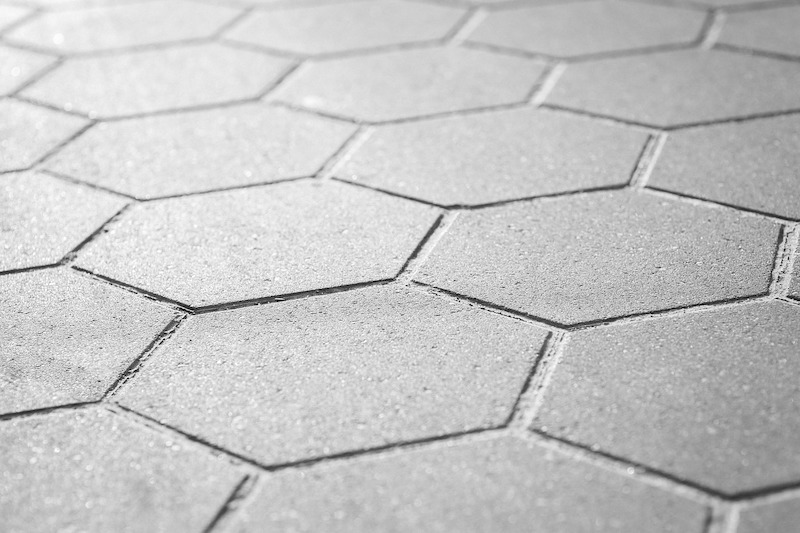Cool pavements—reflective coatings or additives applied to concrete and asphalt—could have an unfortunate byproduct.
New research conducted in Los Angeles’ San Fernando Valley examined the impact of pavements that had been mixed with a reflective additive. The finding: reflected energy from sunlight can make people walking on the pavement significantly hotter.
According to a researcher’s sensors, on a hot, dry day, a pedestrian could feel more than 7 degrees warmer on a “cool pavement,” compared to how he or she would feel on a standard blacktop. The standard dark pavement stores some of the energy and converts it into heat, while the cool pavement reflects more energy.
Studies support the notion that reflective surfaces can reduce the heat island effect by a few degrees in urban areas, but at least in the brightest times of the day, they can make people walking on them feel hotter. Since 2015, Los Angeles has covered about 50 city blocks in reflective coatings and seals, and plans to continue with this initiative.
Related Stories
| Nov 10, 2011
WaterSense standard for weather-based irrigation controllers unveiled
The U.S. Environmental Protection Agency’s (EPA) WaterSense program has released a final specification for weather-based irrigation controllers—the first outdoor product category eligible to earn the WaterSense label.
| Nov 10, 2011
Advocate seeks noise reduction measures in California building codes
A former chief building inspector for San Francisco wants to enact building codes that would limit noise levels in restaurants and other spaces open to the public.
| Nov 10, 2011
California seismic codes spur flurry of hospital projects
New seismic requirements in California are helping to drive a flurry of new projects and retrofits in the state’s health care sector.
| Nov 10, 2011
Senate ready to repeal 3% withholding on government contracts
The U.S. Senate is set to approve legislation that would eliminate a law requiring federal, state, and local governments to withhold 3% of their payments to contractors and companies doing business with the government.
| Nov 10, 2011
New legislation aimed at improving energy efficiency in federal buildings
Recently introduced legislation, the “High-Performance Federal Buildings Act,” would help federal agencies save energy and money by improving building performance.
| Nov 4, 2011
CSI and ICC Evaluation Service agree to reference GreenFormat in ICC-ES Environmental Reports?
ICC-ES currently references CSI's MasterFormat and other formats in all of its evaluation reports. The MOU will add GreenFormat references.
| Nov 3, 2011
House Votes to Kill 3% Withholding Requirement; Senate Yet to Vote
The U.S. House of Representatives voted last week to repeal a 3% IRS withholding tax on businesses that do work for the government.
| Nov 3, 2011
OSHA Publishes Information on Rights and Safety
OSHA recently published new and revised information that explains workers’ and employers’ rights, as well as how to protect workers from hazards in the construction industry.
| Nov 3, 2011
Sierra Club Critical of Albuquerque Mayor’s Push to Weaken Green Code
The mayor’s plan to move to a less environmentally friendly code would mean confusion for people in the construction industry and a loss of energy efficiency and money for consumers, said Shrayas Jatkar of the Sierra Club.
| Nov 3, 2011
Lax Code Enforcement Blamed for Deaths in Turkey’s Earthquake
Despite tough safety codes approved a decade ago after earthquakes killed 18,000 people, lax enforcement led to hundreds of deaths after a recent earthquake in Turkey.









